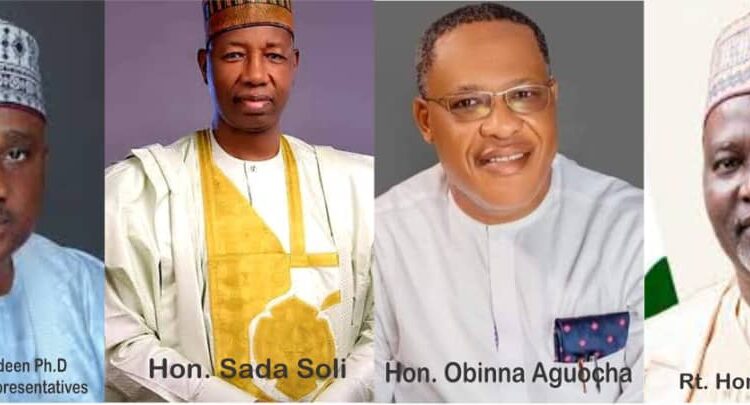The Tax Reform Bills sent to the National Assembly have been generating a lot of controversies in recent times. While the bills passed Second Reading in the Senate recently, the House of Representatives is yet to deliberate on the general principles of the proposed reform bills.
The Speaker of the House of Representatives, Rt. Abbas Tajudeen Ph.D, from the unfolding scenario seems to be trying not to hurt the presidency, his northern region and Members in the green chamber on the issue of the tax reform bills, however there is indication that there is formidable coalition against the bills led by vocal and influential Members.
The mere allusion to the bills by the House Spokesman, Hon. Akin Rotimi, during a plenary session penultimate week, led to a rowdy session before the Speaker, Rt. Hon. Abbas Tajudeen Ph.D. withdrew the comments on behalf of the lawmaker.
The Northern Governors, on 29th October 2024, made an announcement opposing the bills and called on President Bola Tinubu to withdraw them from the National Assembly.
Similarly, the National Economic Council presided over by Vice President Kashim Shettima, advised the federal government to withdraw the bills to create room for broader consultations among critical stakeholders
On September 3, 2024, President Bola Tinubu transmitted four tax reform bills to the National Assembly for their consideration following the recommendations of the Taiwo Oyedele-led Presidential Committee on Fiscal and Tax Reforms.
Taiwo Oyedele briefed the lawmakers and stakeholders during the dialogue on the bills that took place at the House of Representatives.
The bills include the Nigeria Tax Bill 2024, which aims at providing the fiscal framework for taxation in the country, and the Tax Administration Bill, which purportedly would provide a clear and concise legal framework for all taxes in the country and reduce disputes.

Others are the Nigeria Revenue Service Establishment Bill, expected to repeal the Federal Inland Revenue Service Act and establish the Nigeria Revenue Service as well as the Joint Revenue Board Establishment Bill, which will create a tax tribunal and a tax ombudsman.
Recently, an executive session presided over by the Deputy Speaker, Rt. Hon. Benjamin Kalu deliberated on the tax reform bills. There were allegations that the session was greeted with serious opposition to the bills by members, especially from the ruling All Progressive Congress and other opposition parties.
Due to the controversies surrounding the bills, deliberations on them in the House of Representatives were put on hold for further legislative consultations.
However, from the unfolding events, the opposition to the bills and the controversies surrounding them have led to a strong formidable coalition, which is the first of its kind since the inception of the 10th House of Representatives.
On serious political and economic issues that need National Assembly input, the principal officers are sometimes consulted first by the Executive Arm for smooth deliberation and passage of bills.
However, the current issue regarding the tax reform bills need not only be for the robust attention of the principal officers in the green chamber but also the support of other vocal and influential members who have the ability to convince their colleagues.
Some of the members whose influence can not be underestimated as far as the current issue of tax reform bills are concerned include the former Deputy Speaker, Rt. Hon. Idris Wase, Hon. Sada Soli, Hon. Obinna Aguocha, Hon. Ahmed Jaha, Hon. Abubakar Hassan Fulata, among others.
The number of members in this tax reform coalition appears to constitute a super majority, and is growing day by day and had the potential to kill the bill in its current form.
The coalition, though it depends on how it is being handled, may outlive the current tax reform bills issue.

